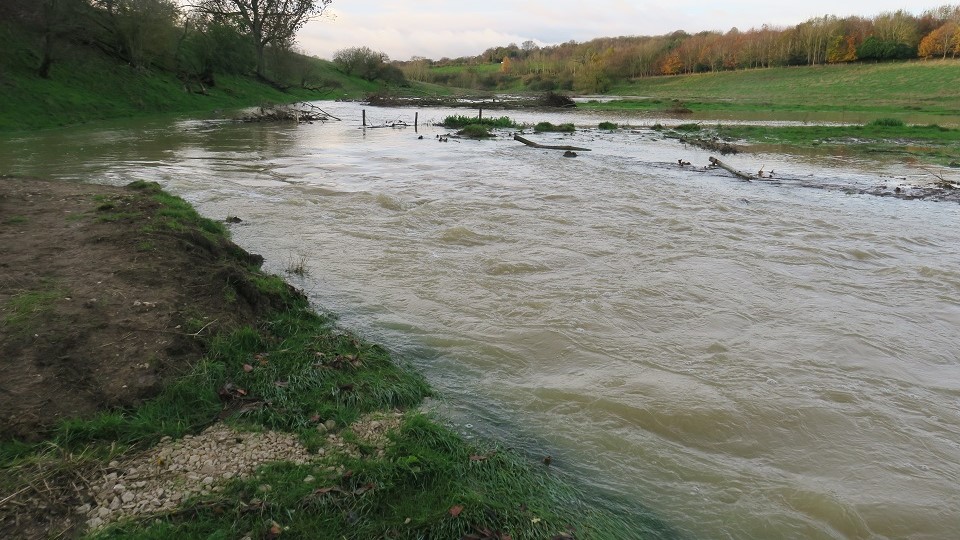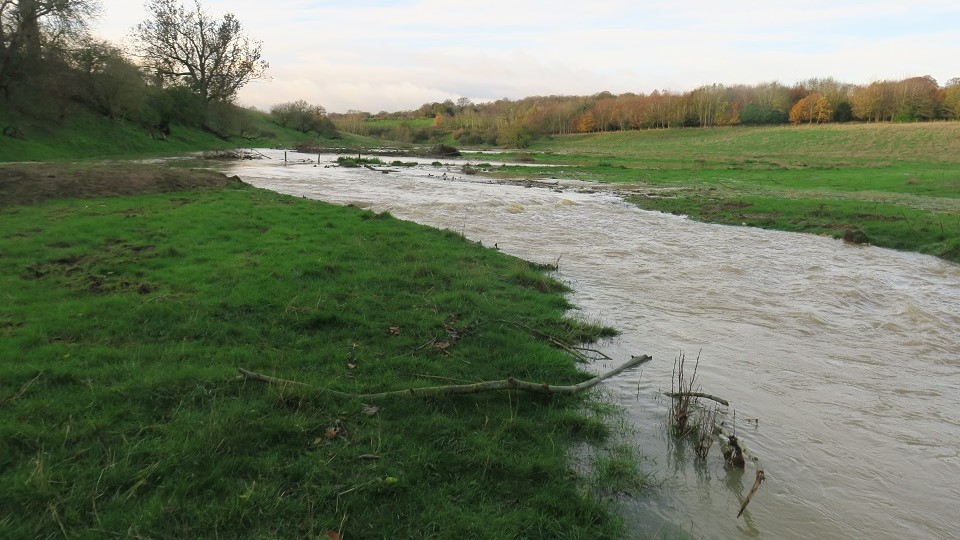A river restoration project on the River Witham in Lincolnshire between the Environment Agency, Breheny Civil Engineering, Ebsford Environmental and a local landowner is complete.
The project, described as a “stage zero river reset”, will absorb more than 117 tonnes of carbon, help drought and reduce flood risk downstream. It involved infilling the river channel with soil to allow water to spill out and choose the direction it takes. This will create wetlands and smaller streams. Fallen timber has been added to slow the flow of the water leaving the site.
The wetlands act like a sponge, they encourage water to spill out onto the floodplain during wet periods but also release water back into the river in low flow periods. This means the wetlands will help support wildlife during drought as well as reducing flood risk downstream. The wetlands will also help to trap nutrients and fine sediment resulting in cleaner river water downstream, benefitting fish and other animals.
The works have already raised groundwater levels across the site by 1.5 metres, creating a wetter environment that may not have existed for 2,500 years. This work has combated the historical drainage that took place for land drainage and milling purposes.
Geomorphologist Matt Parr and Project Manager Katie Murphy, from the Environment Agency, said:
“We are delighted with the initial results regarding the wetter landscape and water table recharge benefits because of this project.
“These works link to other projects across the UK and the US where this technique was developed. The project also links to a wider catchment-based floodplain restoration approach led by East Mercia Rivers Trust and the Wild Trout Trust. They have been instrumental in supporting delivery of projects on the Upper Witham.
“It will be fascinating to watch the site, river and wetlands develop and evolve over time. This is especially true now that the river has the freedom to choose its own shape and form without human interference.”
The restoration is in a rural river valley location on the River Witham above Grantham. There are no properties or roads within the confined valley floor that can be impacted by the wetter landscape.
Across the country, the Environment Agency is working with nature, tackling the biodiversity and climate crises together. Nature-based approaches, such as wetland creation, can provide valuable habitat to support ecological resilience and provide societal resilience by supporting flood protection and water management.
This project is being monitored by researchers from the University of Lincoln and UMEÅ University in Sweden. The researchers will study how the new wetland landscape respond to floods and droughts and the effect on downstream water levels. They will also be monitoring the improvements in biodiversity for native brown trout, rare native crayfish, as well as benefits to climate change resilience.




